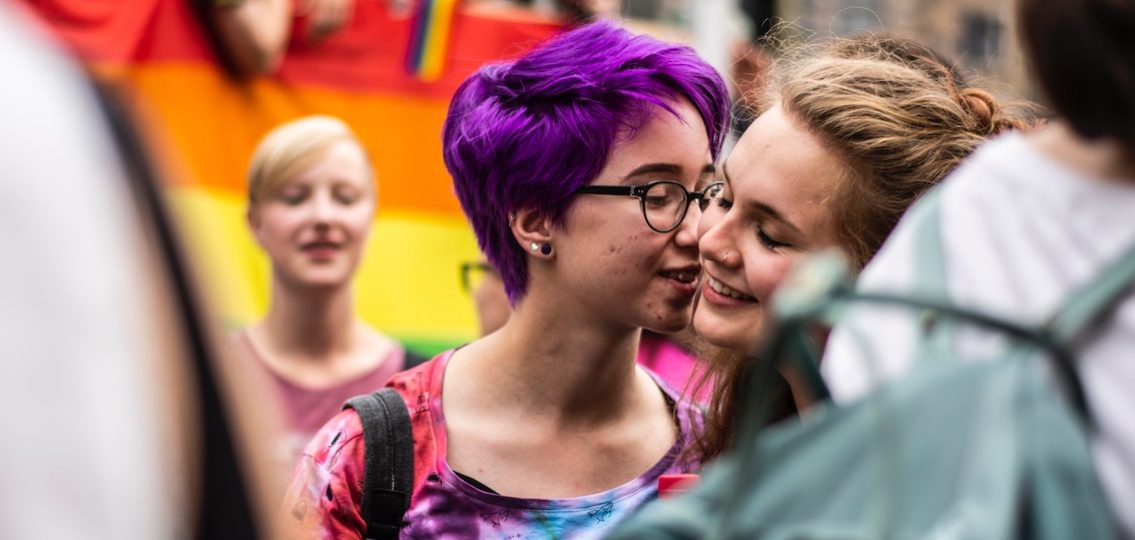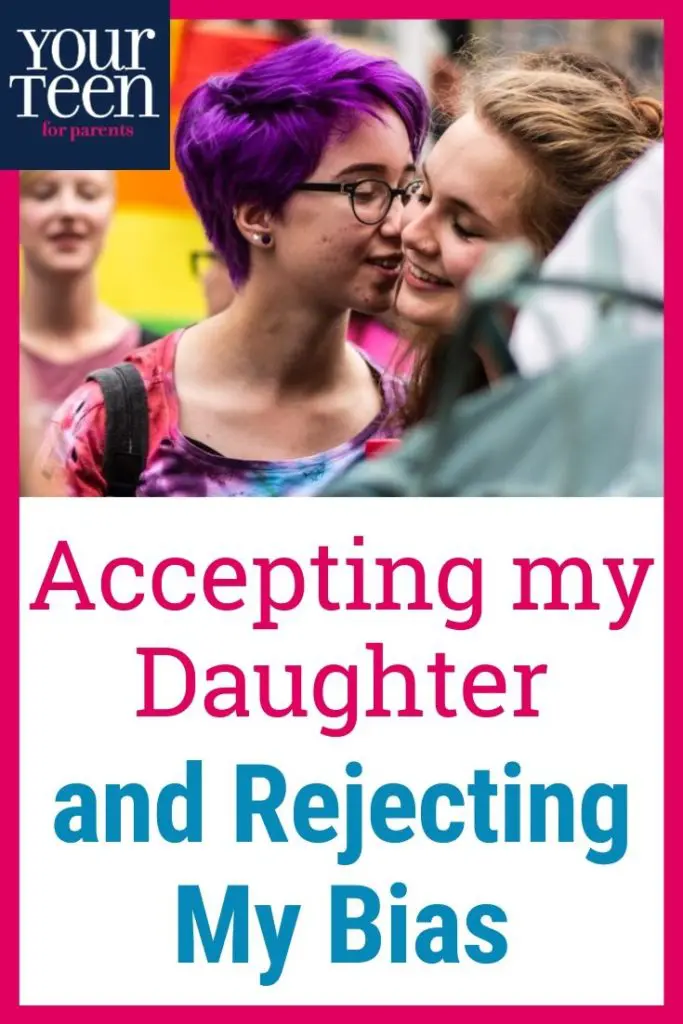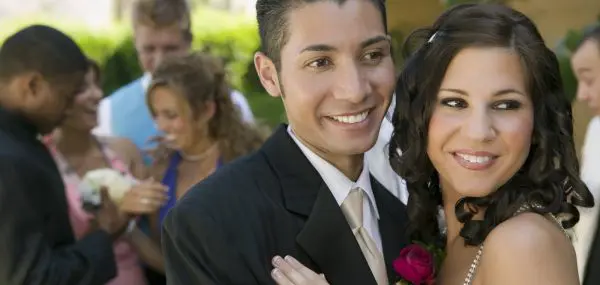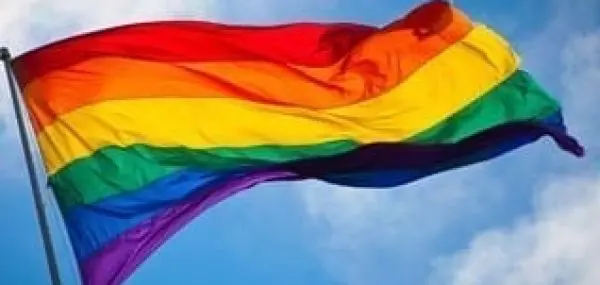My daughter recently claimed that when she came out to me the first time in seventh grade, I dismissed her with not much more than a wave of my hand.

“I am not making this up,” my first-born, now a proud, out of the closet 17-year-old, calmly recounted. “I told you that I thought I may be bisexual, and you just said, No you’re not.”
“I’m sure I would remember such a conversation,” I said, refusing to take responsibility for such shameful, un-woke behavior. But then I spiraled away into my own thoughts, wondering why I might possibly be repressing the memory. It’s very likely I just didn’t want to talk about sexuality with my then 12-year-old.
I used to joke that I would be happy to discover that I was bisexual. Then I could get away from the men who drove me crazy.
In other words, I thought I was a fan of the LGBTQ world.
When my second husband anxiously came out to me as bi, I shrugged my shoulders. I only cared if he was faithful. So long as his fluid attraction to women and men didn’t lead to infidelity, I honestly didn’t mind.
However, when my child confessed to me that she liked both boys and girls, I may have been able to remain calm on the outside, but I felt my conservative upbringing forcefully tugging on my sleeve. I dismissed my narrow-minded alter ego, and told myself that children who are denied their identity fall onto all sorts of self-destructive paths. It was my job as a mother to be supportive and open-minded, for gender preference was evidently not something that could be controlled.
My daughter brought up her sexuality with me again because there was a girl she had developed feelings for. I admired how she could love without seeing gender. Only a few weeks earlier she had been busy falling in love with a boy who broke up with her when she said that she may be bisexual.
So, there we were—a teenager in love, about to ask a girl to go steady with her, and a mother who wanted to be cool, but had to fight her own upbringing to be a good parent.
Sometimes being a good parent means managing conflict and drawing your child’s boundaries, but this wasn’t one of those times. This was a pivotal point, which provided an opportunity to be supportive and nourish the relationship with my daughter. If I was inflexible and unsupportive, I worried it would foster distance and secrecy.
I have spent a lot of time thinking about all of this over the past year. (That’s how long my daughter has now been in her relationship.) Why was it that so many of her friends had also come out as bisexual? Was this a new trend? Was it a phase—and how can one know?
My daughter gets offended when I use the word “phase” in the context of her sexual orientation. She now claims she is just gay, period. However, I get the feeling it may be because her girlfriend feels threatened by her bisexuality. I tell her not to change herself for others and leave it at that. I figure she will eventually know for sure how she identifies. But the fact is, it’s not really any of my business. Her sexuality is hers.
However, if there is one thing which remains my business, it is my child’s safety.
After a lot of introspection, I decided that perhaps it wasn’t just remnants of my conservative upbringing making me uncomfortable about my daughter’s new identity. More likely, it was the potential dangers she faces. It makes me uneasy when my daughter posts pictures of herself with her girlfriend on social media and that she is just so unrestrained with her public displays of affection. I’m afraid of her becoming a possible target. I can’t help but worry for her safety.
As I watch this kid’s pure joy when she spends time with her girlfriend, I try to remind myself of all the other times I was scared for her when she would venture out into new territory, whether it was riding a bike, walking to school by herself, or learning how to use public transportation.
Like most parents, I have been afraid of her breaking since she was born.
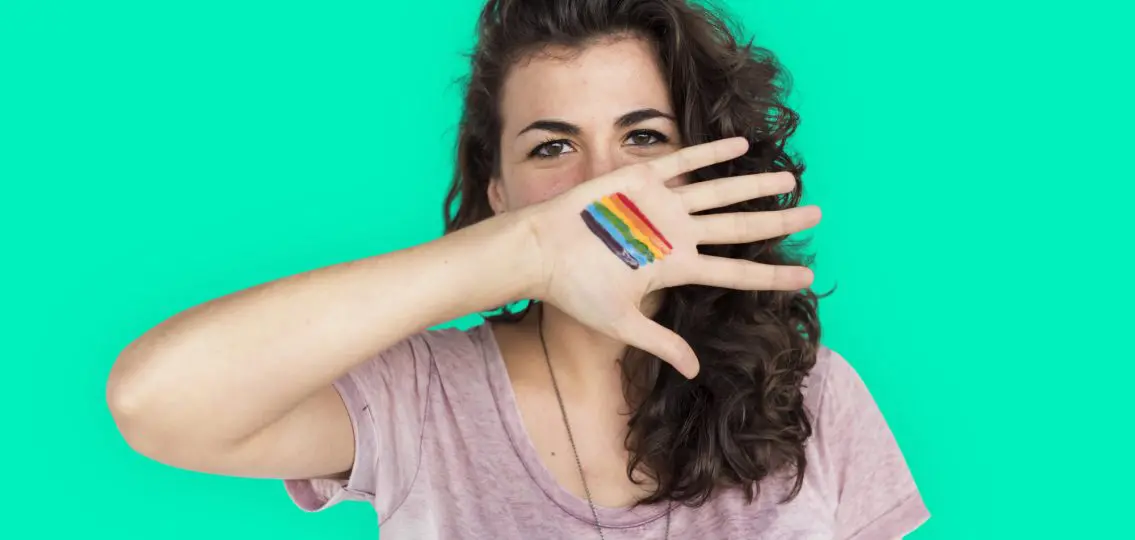
One thing I have learned, especially in the last year, is that we cannot box our children up and keep them safely on a shelf. We have no choice but to let them go and live their lives—and follow their hearts—in this world.
